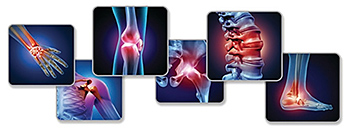A longtime patient recently contacted me with an interesting question: "Does Tian Wang Bu Xin Dan help with joint pain? I know we started this formula for hot flashes, but every time I stop taking it, my joint pain slowly creeps back. When I take it, my joint pain goes away."
TCM practitioners understand that the prescription of herbal formulas is typically based on differential diagnosis and pattern differentiation, which offer a vast view of potential uses for a respective TCM formula. However, it is not uncommon for even seasoned TCM practitioners to administer herbal formulas based upon marketing strategies or allopathic concepts.
Let's use this wonderful question from my patient to showcase an inspiring teaching opportunity on how TCM formulas have a wide range of therapeutic applications.
TCM Actions Provide a Clue
 Why would the herbal formula Tian Wang Bu Xin Dan potentially stop joint pain? The TCM actions for Tian Wang Bu Xin Dan are calming the shen, cooling blood heat, nourishing heart blood, supplementing yin, boosting qi, and clearing heart heat. The herb combination of dang gui + dan shen strongly targets blood stasis, and the combination of wu wei zi + suan zao ren enters the liver meridian, and nourishes and gently courses the liver qi.
Why would the herbal formula Tian Wang Bu Xin Dan potentially stop joint pain? The TCM actions for Tian Wang Bu Xin Dan are calming the shen, cooling blood heat, nourishing heart blood, supplementing yin, boosting qi, and clearing heart heat. The herb combination of dang gui + dan shen strongly targets blood stasis, and the combination of wu wei zi + suan zao ren enters the liver meridian, and nourishes and gently courses the liver qi.
When we move the blood and course the qi, we can target and ameliorate pain. This could apply to all types of pain, such as joint pain or muscular pain. The three herbs shu di huang, mai men dongand tian men dong deeply nourish kidney yin and consequently, liver / heart yin.
When the body is deeply banked on yin, the blood has a fertile source for enrichment. Both of these actions can heal and nourish ligaments, tendons and joints, which often suffer from impaired circulation and degeneration with aging.
The Clinical Case
My 60-year-old female patient initially was prescribed Tian Wang Bu Xin Dan for chronic insomnia coupled with chronic low-grade anxiety, with a tendency to feel hot at night. Her tongue was scarlet red with deep cracks, and her pulse was deep and thready. Therefore, I prescribed Tian Wang Bu Xin Dan for heart / kidney yin deficiency with deficient heat. At the time of her initial diagnosis, she was not experiencing joint pain.
After taking Tian Wang Bu Xin Dan for four weeks, my patient's anxiety was completely resolved and she was sleeping more deeply After two months on this formula, her insomnia resolved and she was no longer hot at night. She asked if she could stay on this formula and since her tongue showed strong signs of deep yin deficiency, I agreed it was a good idea to take this nourishing formula long-term, as reversing kidney yin deficiency in the senior years can be challenging.
The Joint Pain "Twist"
After taking Tian Wang Bu Xin Dan for a year, the patient was sleeping deeply and not suffering from any level of anxiety. At this point she did mention the following:
"After taking this formula regularly, I notice that I'm not sore after workouts like I used to be and my knees feel stronger. Does this make sense to you?" Of course, this did make perfect sense to me.
From a clinical perspective, she was building up her kidney / liver yin; as well as nourishing and moving her blood. These actions have huge implications for musculoskeletal health and vitality.
Therefore, we should consider that Tian Wang Bu Xin Dan is not simply a "hot-flashes" formula, or an "anxiety formula" or "sleep formula." Rather, we should contemplate that Tian Wang Bu Xin Dan calms the shen, cools blood heat, nourishes heart blood, nourishes yin, boosts the qi, and clears deficiency heat. This combination of TCM therapeutic actions can have massive implications for a patient's life!
Clinical Takeaway
So, always remember that TCM formulas are not only effective for the predictable clinical presentations. Always examine the herbal combinations and contemplate how the wide range of actions may be applied for each patient's unique pattern presentation and their unique life presentation. Each TCM formula is a mystery waiting to be solved!
Click here for more information about Craig Williams, LAc, AHG.




